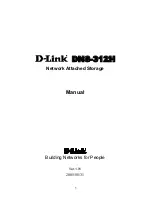
The remainder when the RAID group number is divided by the
number of controllers
Number of CMs (number of CEs)
2 (1CE)
4 (2CE)
1
CE#0 CM#1
CE#1 CM#1
2
—
CE#1 CM#0
3
—
CE#0 CM#1
Striping Size Expansion
Striping Size Expansion is a function to expand the stripe depth value by specifying the stripe depth when
creating a RAID group.
Expansion of the stripe size enables advanced performance tuning. For normal operations, the default value
does not need to be changed.
An expanded stripe depth reduces the number of drives that are accessed. A reduced number of commands to
drives improves the access performance of the corresponding RAID1+0 RAID groups. However, it should be noted
that an expanded stripe depth may reduce the sequential write performance for RAID5.
The available stripe depth values vary depending on the RAID level. For more details, refer to "ETERNUS Web GUI
User's Guide".
Caution
•
The read/write performance of the random access can be enhanced by changing the setting, however,
note that the performance can be degraded, depending on the used system.
•
The following restrictions are applied to the RAID groups with expanded stripe sizes:
-
Encryption and Logical Device Expansion cannot be performed on the volumes which belong to the
RAID group.
-
RAID groups with different stripe sizes configured cannot coexist in the same pool (TPP or FTSP).
-
A WSV cannot be configured by concatenating RAID groups with different stripe sizes.
•
RAID5 (4D+1P) configurations used for TPPs or FTSPs cannot be set with a stripe size of 512KB.
•
RAID5 (8D+1P) configurations used for TPPs or FTSPs cannot be set with a stripe size of 256KB.
2. Basic Functions
Performance Tuning
122
Design Guide
Summary of Contents for ETERNUS DX S5 Series
Page 335: ......
















































